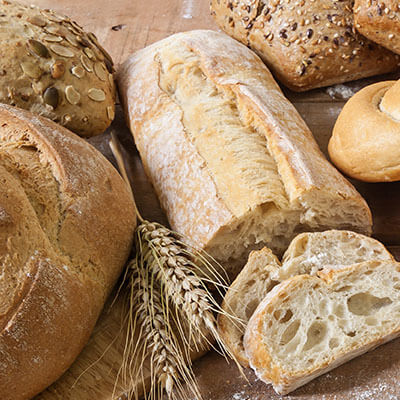An estimated 1% of the general population live with celiac disease. And there is a significantly higher prevalence of the disease in people living with type 1 diabetes. For those people who have two autoimmune diseases, gluten-free eating is anything but a fad.
What is gluten, exactly?
Contrary to what the recent dietary trend would have you believe, gluten is not bad itself. This protein, present in wheat, rye, triticale and barley, helps bind bread and other baked goods, which is why it’s found in many processed foods.
Celiac disease or gluten intolerance?
In people who live with celiac disease, gluten triggers an abnormal reaction of the immune system, causing damage to the small intestine. This results in nutrient deficiencies, which can lead to fatigue, anemia, weight loss, cramps and chronic diarrhea.
People who are sensitive to gluten do not have damaged intestines but experience various symptoms like abdominal pain, fatigue and headaches.
Freeing yourself from gluten
Be careful: before cutting gluten out of your life, you’ll need to have your celiac disease or gluten sensitivity diagnosis confirmed by a doctor.
Reconciling this new problem with diabetes is mission impossible? Do you need to avoid anything that resembles grains? Of course not! Rice, corn, potato or legume flours, for example, in addition to millet, quinoa and manioc are all naturally gluten-free.
Moreover, don't think that gluten-free foods are necessarily healthier for you: they’re often lower in protein and higher in added sugars, saturated fat and sodium.
The most important thing is to maintain a balanced diet. Otherwise, you could develop dietary deficiencies or see your blood sugar increase.
On that note, here some bad news: eliminating whole-wheat products means losing a major source of dietary fiber - an ally for managing your blood sugar. Instead, opt for whole grains.
Finally, it's better to avoid battered or fried foods, since oils used for frying in restaurants are often contaminated by gluten.
As you're already following much of those advise, you probably won't have any trouble making these few changes to your menu!
Reconciling Gluten Intolerance And Diabetes
